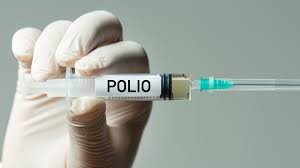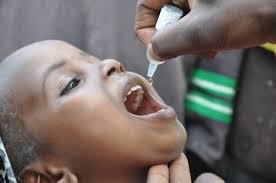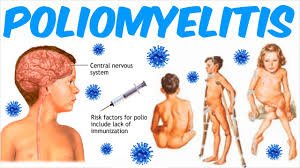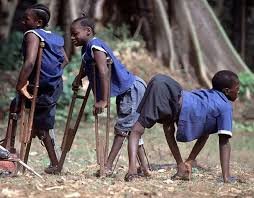Kano State, one of Nigeria’s most populous state, has been grappling with significant obstacles in its efforts to eradicate polio. Misinformation, cultural beliefs, and religious interpretations have all contributed to the state’s ongoing struggle to administer polio vaccinations to its vast population. These factors have hindered the progress of immunization campaigns, creating a complex and challenging environment for health officials. In this report, Hussaini Ibrahim Kafi examined the aforementioned pressing challenges and response of the state government and NGOs towards containing them.
Spread of Misinformation
The spread of misinformation about polio vaccines has been particularly detrimental. Rumours and false narratives, often amplified through social media and word-of-mouth, have instilled fear and distrust among many residents. These unfounded claims have led to vaccine hesitancy and outright refusal, making it difficult to reach vulnerable populations.
Cultural and religious factors have also played a significant role in the challenges facing polio immunization in Kano State. Traditional beliefs and practices, coupled with religious interpretations, have sometimes discouraged the use of vaccines, particularly among certain communities. These cultural and religious barriers have made it necessary to tailor immunization strategies to address specific concerns and sensitivities, requiring a nuanced approach to engagement.
What is polio disease?
According to Dr. Abubakar Riruwai, a pediatrician doctor at Murtala Muhammad Specialist Hospital, Kano, said Polio is a contagious viral illness that can cause paralysis or even death. It is spread through contact with infected faeces or respiratory secretions. While most people infected with polio experience no symptoms or mild flu-like illness, the virus can attack the nervous system, leading to paralysis.
Children under five years old are most at risk, but anyone who is unvaccinated can contract polio. There is no cure for polio, but the polio vaccine can provide lifelong protection.
AHR Finding
According to a recent finding by the Africa Health Report Correspondent revealed that over 2million children remain unvaccinated in the state.
Khadija Sulaiman, Polio Vaccine Team Supervisor, who spent six years immunizing children against polio in four areas: Alhaji Adamu Street, ‘Yan-kifi, Malam Tahir Street, and Babban Layi, all located in Unguwa Uku quarters of Tarauni Local Government Area of Kano State, said one of the biggest challenges bedevilling the immunization is misinformation.
According to her, people often believe that the polio vaccine is useless or even harmful. Some claim that it causes diseases like stomach aches or weight loss. “I remember one woman who refused to vaccinate her children because she believed that the vaccine would make them sick. We had to explain the dangers of polio and the importance of prevention to convince her.
“We try to educate people about the seriousness of polio and the fact that there’s no cure. We emphasize that the vaccine is the only way to protect children from this debilitating disease. We also share stories of children who have been affected by polio to highlight the consequences of not vaccinating,” she maintained.
Vaccine a Western Conspiracy?


She further highlighted that, some people also believe that the polio vaccine is a Western conspiracy to harm Africans. “They may refuse vaccination based on these beliefs. It’s important to address these misconceptions and provide accurate information about the vaccine.
“There have been times when we’ve encountered resistance. For example, in September, 2024, in Ummusalama quarters, we went to a house where the woman was not home. My colleague, who knows the family, vaccinated the children without the mother’s consent. When the mother returned, she became very angry and threatened to call her husband. We had to explain our actions and reassure her that the vaccine was safe,” Khadija revealed.
Speaking while supervising the polio immunization exercise in Kunchi and Tsanyawa local governments, respectively, the state Commissioner for Health, Dr. Labaran Yusuf, emphasized that people need to understand that children are vaccinated for them to get a robust immune system that could fight and defeat diseases intruding on the bodies, maintaining that diseases like diphtheria, measles, etc, are vaccine-preventable diseases but were still with the people.
Dr Labaran lamentably asserted that non-compliance by some people endangers the health indices of the state, urging them to rescind by allowing their eligible children to get vaccinated, failure of which could lead to transmission of diseases to the immediate neighbourhoods, communities and the state at large.
The consequences

“For a long time, I was sceptical about vaccinating my children against polio, but now I know better after one of my children work up one morning with weakness of his limbs due to polio says Baba Ali, a resident of Dawakin Kudu LGA in Kano State
“I thank God that my three-year-old son is now regaining the use of his legs. I will henceforth not only allow my children to be vaccinated but will champion the drive to vaccinate other children in my village. I have learnt that there are a couple of families in Wangara that do not allow their kids to receive routine immunization. I hope my case will serve as an eye opener to them before it is too late” he said.
Just like Mr Ali, Hajiya Sa’a, grandmother of Tanimu the 23 months old boy paralyzed in Tambutu settlement of Jido ward in Dawakin Kudu LGA, Kano State said although her grandson started receiving the routine vaccination, his parent did not comply with routine immunization calendar and the child did not complete his vaccination doses.
“I have seen the consequences of that. This will not repeat itself in my family. I am now more enlightened, and I urge all and sundry to follow the vaccination schedule religiously” said Hajiya Sa’a.
Way forward
Although Nigeria has successfully eradicated the wild poliovirus in the country, there have been recent reports of the circulating Vaccine Derived Poliovirus (cVDPV2) in 18 states, including Kano where four children were already confirmed paralyzed of the disease.
In an effort to curtail the spread of cVDPV2 outbreak in Kano State, the World Health Organization (WHO) supported the state government to plan and conduct mass vaccination exercise with the novel Oral Polio vaccine type 2 (nOPV2). The Outbreak Response (OBR) campaign was synchronized with four neighbouring states that were also affected. A total of 3,297,347 children aged 0-59 months, representing 99% of the targeted children in Kano State, were vaccinated at the end of the exercise on 4th August 2021.



